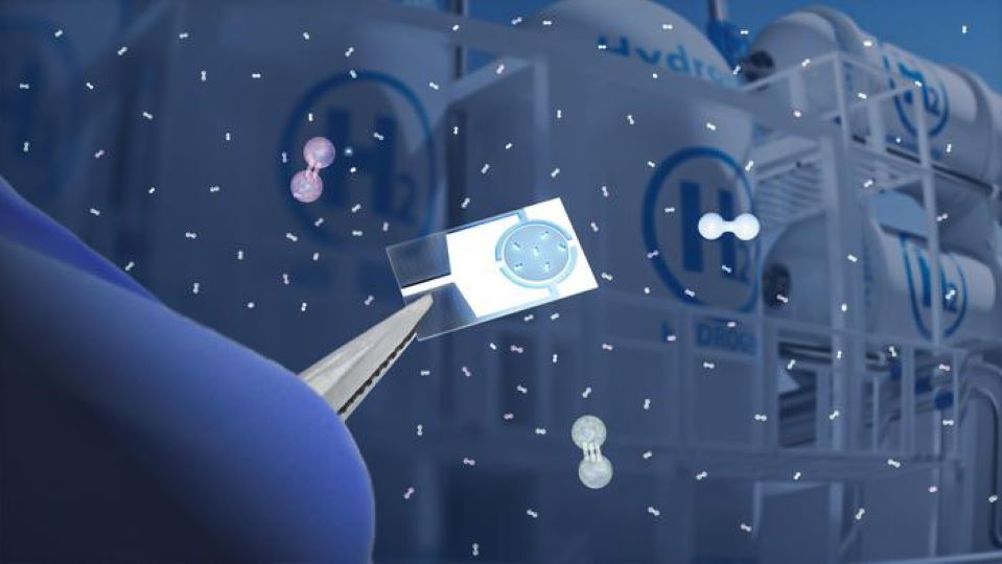Ultra-sensitive hydrogen sensor outperforms commercial detectors
A team at King Abdullah University of Science and Technology (KAUST) has developed a highly sensitive, low-cost hydrogen sensor that is claimed to outperform commercial detectors.

Suman Mandal, a member of the Physical Science and Engineering Division at KAUST, said conventional hydrogen sensors often respond slowly to hydrogen leaks, cannot detect trace levels of hydrogen, and must be heated during operation.
The researchers have overcome these problems using DPP-DTT, a semiconducting polymer which they coated onto a pair of platinum electrodes. Exposure to hydrogen reduced the current flowing through the device by up to 10,000 times, with the drop in current corresponding to the concentration of hydrogen.
“This high responsivity ensures rapid and precise detection of gas leaks, which is essential for safety in industrial and transportation sectors,” Mandal said in a statement.
According to KAUST, the device operates at room temperature and can detect traces of hydrogen at 192 parts per billion. It is said to respond within one second of exposure and consumes two microwatts of power. Laboratory tests showed the device could operate over a wide temperature and humidity range and remained functional for two years.
Register now to continue reading
Thanks for visiting The Engineer. You’ve now reached your monthly limit of news stories. Register for free to unlock unlimited access to all of our news coverage, as well as premium content including opinion, in-depth features and special reports.
Benefits of registering
-
In-depth insights and coverage of key emerging trends
-
Unrestricted access to special reports throughout the year
-
Daily technology news delivered straight to your inbox










CCC Report Finds UK Climate Targets Still Within Reach
In 1990 67% of the UK´s electricity came from coal-fired power stations and even without renewables the transition to gas was a major contributor to...